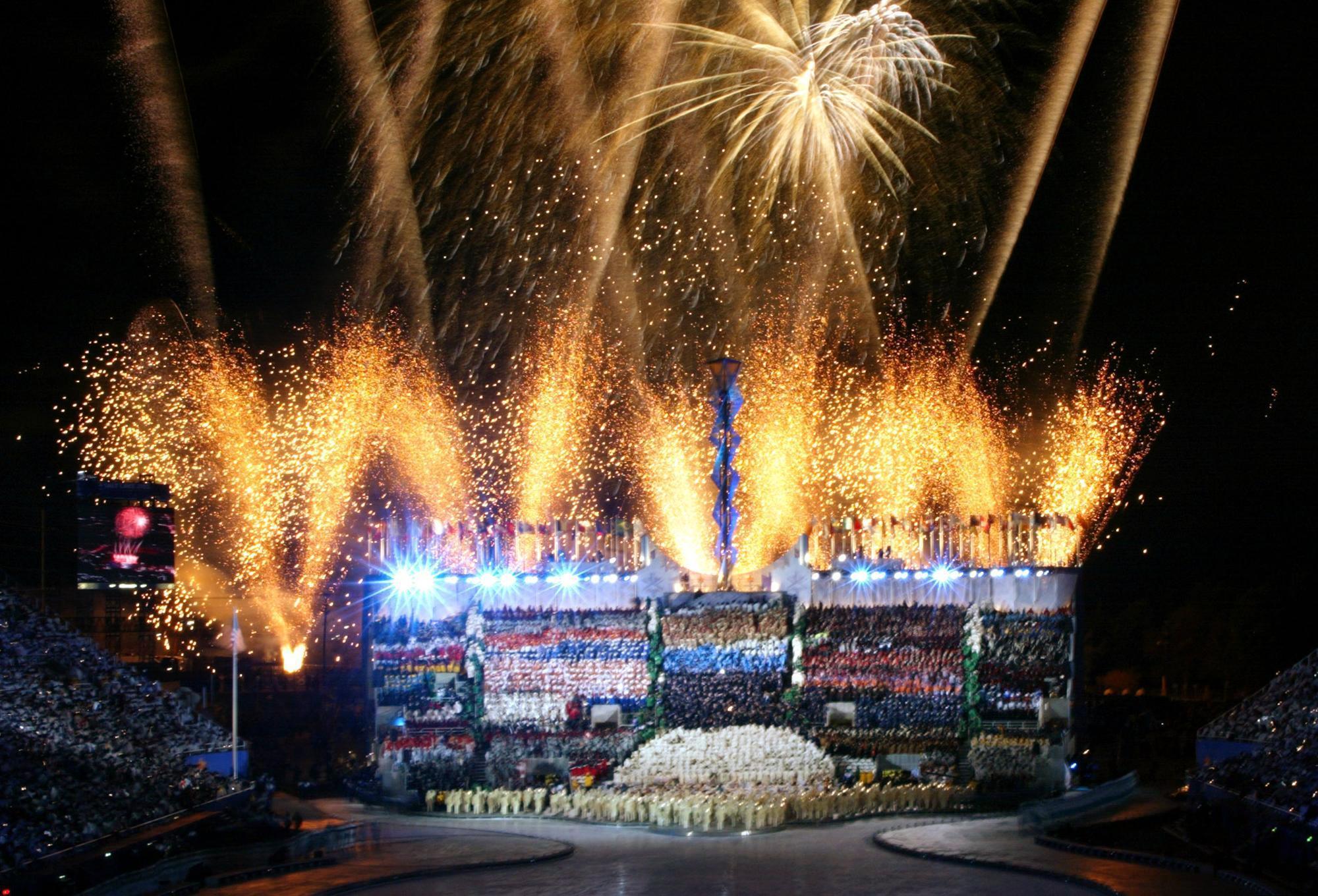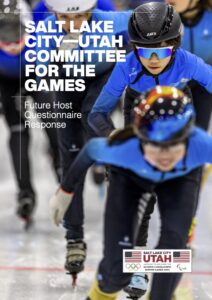
The Salt Lake City-Utah Committee for the Games officially submitted its bid to host the 2034 Olympic and Paralympic Winter Games on Thursday to the International Olympic Committee with an eye toward being officially announced as the host for a future Games on July 24.
The International Olympic Committee’s Future Host Commission invited Salt Lake to targeted dialogue for 2034 in late November with the French Alps region for targeted dialogue with an eye toward the 2030 Games. The formal awarding of the 2034 Games to Salt Lake City should come July 24 on Pioneer Day, the state’s official holiday, during the IOC Session in Paris ahead of the 2024 Olympic Summer Games.
“Today was such a monumental day in our journey to bring the Games back to Utah,” said SLC-Utah President and Chief Executive Officer Fraser Bullock, later adding “(2034 is) the perfect fit for Utah in terms of timing and it’s the perfect fit for the IOC.”
The SLC-Utah governing board approved the submission on February 22. Along with today’s submission, the group will send in a submission of guarantees on March 29 including contracts and other deliverables. The IOC Future Host Commission will be in Salt Lake City from April 9-13, then the IOC Executive Board will put Salt Lake City forward for election during its meeting June 12-14 ahead of the official announcement in Paris.
 “We’re really excited because unlike in the past with the evaluation commission, this is the Future Host Commission and we can be much more engaging with the IOC and the public,” said SLC-Utah Bid Lead Darren Hughes of the April IOC visit.
“We’re really excited because unlike in the past with the evaluation commission, this is the Future Host Commission and we can be much more engaging with the IOC and the public,” said SLC-Utah Bid Lead Darren Hughes of the April IOC visit.
The IOC’s earlier feasibility study on the Salt Lake bid praised its 2002 legacy, including 100 percent use of existing venues that were used in 2002 and still maintained. There will be no significant capital investment required with the venue plan all within an hour of the main Athletes Village.
Hosting the Olympic Games in 2034 would make Salt Lake City the fifth city to host the Winter Games twice, joining Lake Placid, New York (1932 and 1980); St. Moritz, Switzerland (1928 and 1948); Innsbruck, Austria (1964 and 1976) and Cortina d’Ampezzo, Italy, which hosted the 1956 Games and will co-host the 2026 Games with Milan.
“This is quite an epic achievement at this point and we’re proud to be working with SLC-Utah in preparation for this incredible event 10 years from now,” said Gene Sykes, board chair of the United States Olympic and Paralympic Committee. “The IOC has confirmed with me within the past couple of days that they’re not only satisfied, they’re thrilled to have a partnership with your team.”
When Salt Lake started its journey to hosting the Games again, it was as equally focused on 2030 as 2034. But as its focus more turned toward 2034, bid officials became focused on working ahead of the pace the IOC expects of bidders with all contracts signed with venues, financial guarantees and more. The IOC wants 24,000 hotel rooms reserved for a Winter Games and Salt Lake’s work over the past year-plus has seen it already nearly reach that figure more than a decade ahead of time.
The future host questionnaire sent by the IOC was 43 questions and SLC-Utah organizers replied with 30,497 words (31,000 words in French) and 343 pages with 26 site plans, 18 studies and reports and 52 spreadsheets among other parts. Hughes said there were 32 annexes including site plans, sustainability studies, and financial information. A set of various federal, state, and local government guarantees and venue use, lodging, and marketing rights agreements will be submitted in late March, notably the joint marketing program agreement with the USOPC.
The SLC bid group’s main topics for its Games vision have been elevating communities by inspiring youth with Olympic and Paralympic values, accelerate sustainability and increase unity and inclusion; elevate sport for local communities, Team USA and international athletes coming to Utah; and elevate the Games experience for athletes, their families and spectators. Early plans include having local schools adopt countries ahead of the Games by learning their history, culture and more. Organizers said a future Games also could have one Athletes’ Village located at the University of Utah.
Anita DeFrantz, a longtime executive in the Olympic movement and current IOC member, reminded that there are still votes to be secured from various IOC members but having just been in Lausanne, “you are being spoken of in glowing terms. … the job you’ve done already is magnificent.”











 Copyright © 2025 by Northstar Travel Media LLC. All Rights Reserved. 301 Route 17 N, Suite 1150, Rutherford, NJ 07070 USA | Telephone: (201) 902-2000
Copyright © 2025 by Northstar Travel Media LLC. All Rights Reserved. 301 Route 17 N, Suite 1150, Rutherford, NJ 07070 USA | Telephone: (201) 902-2000